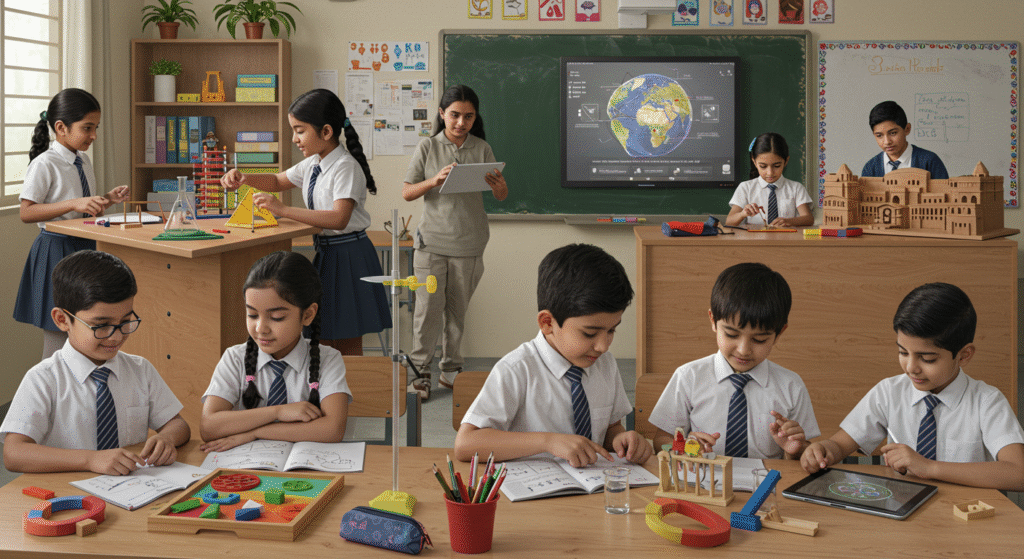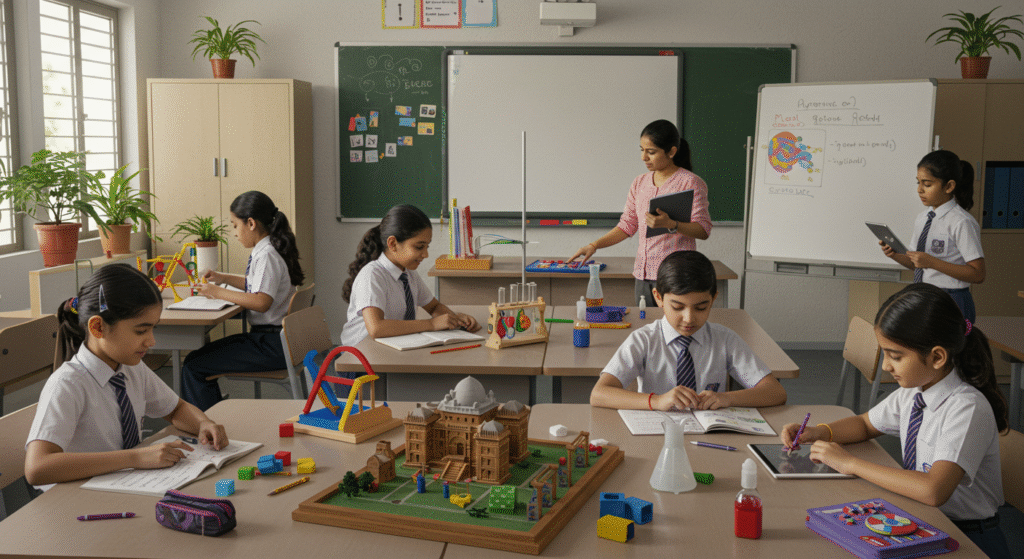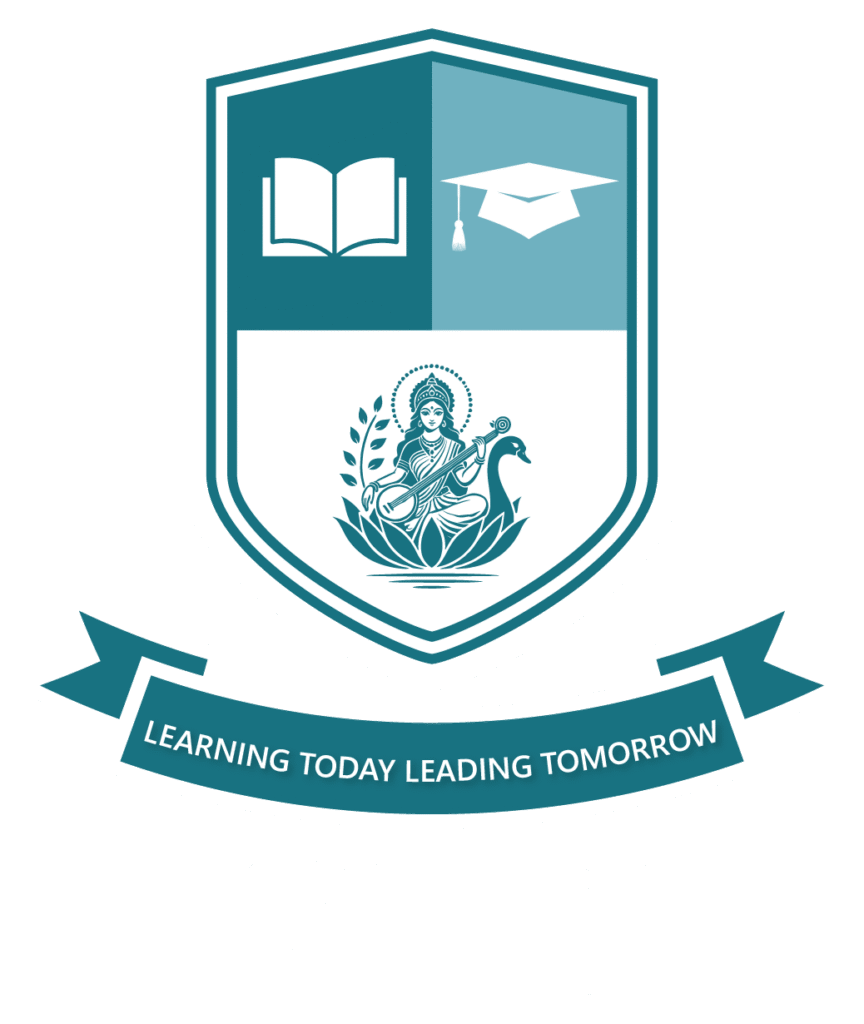
Learning That Lasts: How K Concept School Brings Concepts to Life in Every Classroom
In a world brimming with information, the challenge is no longer access to knowledge — it’s making sense of it. The education system must evolve from focusing on rote learning and exam pressure to nurturing deep understanding, creative exploration, and lifelong curiosity.
At K Concept School, we’ve reimagined what learning can look like — replacing memorization with meaningful concept-based learning that connects lessons to real life. Our mission is simple but powerful: help students not just learn what to think, but how to think.
In this blog, we’ll take you inside our approach to concept-based learning, why it matters now more than ever, and how it empowers your child to succeed in both school and life.
What Is Concept-Based Learning?
Concept-based learning (CBL) is an educational approach that emphasizes understanding core ideas and applying them to real-world contexts rather than just recalling facts.
For example, instead of just learning multiplication tables, students understand the concept of multiplication — as repeated addition, as an essential tool in real-life situations like shopping, budgeting, or measuring. This deep learning forms mental connections that stay with students for life.
Key Features of Concept-Based Learning:
- Focus on “why” and “how” instead of just “what”
- Encourages students to make cross-subject connections
- Develops critical thinking, creativity, and communication
- Promotes problem-solving over passive absorption
- Prepares students for real-life application, not just exams
How K Concept School Implements Concept-Based Learning
At K Concept School, we believe that education should do more than prepare students for tests — it should prepare them for life, leadership, and learning beyond the classroom.
That’s why we embed conceptual understanding into every aspect of our curriculum — across subjects, grades, and daily routines.
1. Structured Yet Flexible Curriculum
Our curriculum is aligned with the State Board (SSC) but is customized to focus on understanding, not memorization. Lessons are designed to introduce a core concept, encourage student-led exploration, and include activities that demonstrate the concept in action.
For example:
- In EVS, students don’t just learn about plants — they grow them, observe them, and discuss why they matter.
- In English, language lessons are tied to stories, discussions, & personal reflections that connect grammar with thought.
2. Real-Life Application
We ensure that every concept taught in the classroom finds a mirror in real life. Children are given tasks, projects, and simulations that require them to use what they’ve learned in a practical way.
Examples include:
- Conducting mock markets to learn economics
- Writing and presenting their own newspaper to understand media
- Building simple machines to learn about physics
- Planning a class event to understand budgeting and teamwork
This approach builds confidence, collaboration, and problem-solving abilities.
3. Inquiry-Led Classrooms
Instead of simply delivering information, our teachers act as facilitators who encourage student questions, curiosity, and exploration.
Students are invited to:
- Ask “Why?” and “What if?”
- Investigate and form their own opinions
- Collaborate in teams to find creative solutions
- Reflect on their learning process and outcomes
This makes learning student-centered, not teacher-directed, and builds a culture of active participation.
The Role of Teachers as Concept Mentors
At K Concept School, teachers are more than just instructors—they are mentors, facilitators, and co-learners. Each educator plays a crucial role in shaping a classroom that values understanding over memorization. They receive regular training in designing concept-based lesson plans, leading inquiry-based discussions, assessing learning beyond traditional marks, and encouraging divergent thinking and creativity. By working closely with students, our teachers guide them to connect knowledge with real meaning, building skills and perspectives they will carry into adulthood.
Assessments That Measure Understanding
Assessment at K Concept School goes far beyond report cards. We measure a child’s learning journey through their grasp of core concepts, ability to apply knowledge in real-life scenarios, communication skills, creativity, collaboration, and continuous improvement. Our evaluation methods include quizzes, open-ended questions, group projects, student-led presentations, and peer reviews—creating a truly holistic understanding of each learner’s strengths and needs.
Concept-Based Learning in Action: A Classroom Snapshot
To illustrate how concept-based learning comes to life, let’s take the concept of “Community” in a Grade 3 class. In Social Studies, students explore different community helpers; in English, they write a story about a local hero; in Art, they design posters celebrating teamwork. In Math, they survey classmates and chart roles they admire, and for a real-world experience, they visit a local police officer or nurse. Finally, they reflect on their learning through class discussions. This single theme connects knowledge across disciplines, blends emotion with understanding, and creates a memorable, meaningful learning experience.
Benefits of Concept-Based Learning at K Concept School
This approach encourages curiosity and independent thinking, sharpens real-world problem-solving skills, enhances communication and teamwork, and fosters lifelong learners instead of short-term test-takers. It also builds emotional connections to content and fully aligns with the National Education Policy (NEP 2020), which emphasizes skill-based learning and a reduction in rote memorization.
Why It Matters for Parents
As a parent, you want your child to not only “perform well,” but to truly grow—intellectually, emotionally, and socially. Concept-based learning ensures just that. It lowers stress, increases curiosity, boosts communication confidence, and builds clarity in thinking. Most importantly, the skills your child gains—critical thinking, empathy, adaptability—will support them far beyond the classroom. At K Concept School, your child isn’t just becoming a good student—they’re becoming a thoughtful, creative, and compassionate individual.
A Parent’s Perspective
“I’ve seen my daughter become more confident and expressive since joining K Concept School. She doesn’t just memorize; she explains, discusses, and even teaches us back at home. It’s a joy to watch her grow.”
— Priya Mehta, Parent of Grade 4 Student
Conclusion: The Future Is Conceptual
As the world continues to evolve, success will belong to those who think deeply, act wisely, and adapt with purpose. At K Concept School, we go beyond preparing children for exams—we prepare them for life. Our concept-based learning approach builds a strong foundation of knowledge, character, and vision. Because in the end, true education isn’t about knowing more. It’s about understanding better


Empowering Young Minds with Knowledge and Values.
At K Concept School, we are committed to nurturing curiosity, character, and confidence in every child to shape a brighter future.

